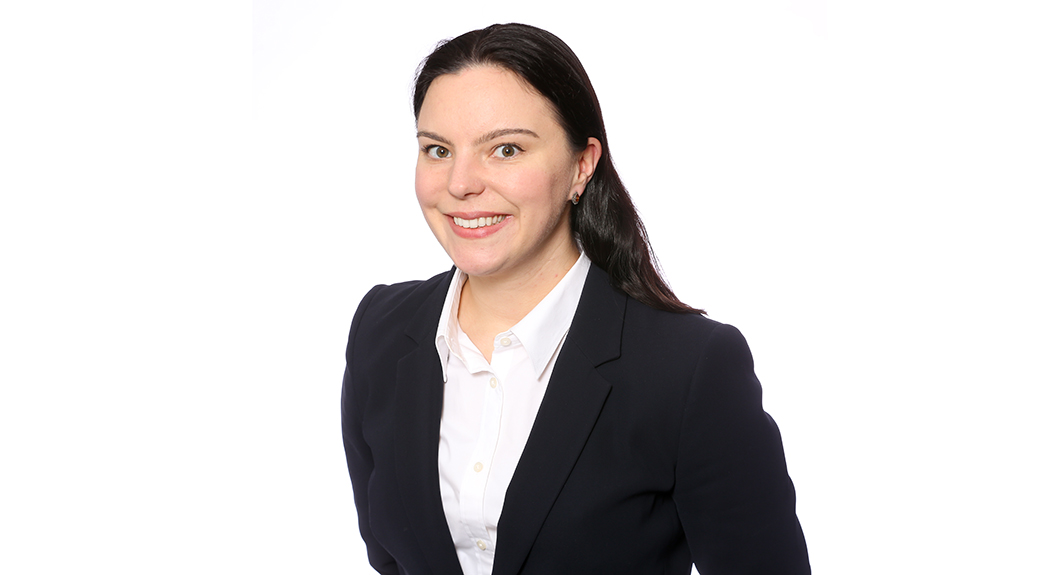How Are Women Breaking Barriers in Law Today?
Kings Chambers’ - Constanze Bell
Kings Chambers’ Constanze Bell has a varied public law, planning and environmental law practice. She is noted for her planning law expertise (Band 2, Chambers & Partners 2024) and as a ‘leading junior’ in regulatory and licensing law (Legal 500 2024). Constanze is the number one highest rated Planning Junior under 35 (2024 Planning Resource Planning Law survey), and is a committee member of the Women in Planning network’s Yorkshire branch. She is also a member of the Kings Chambers author team who write for and produce the quarterly bulletin for the Encyclopaedia of Local Government Law.
Career Path and Motivation
What inspired you to pursue a career in law and can you share your journey into the legal profession and the challenges you faced along the way?
I was inspired to pursue a career in law because I loved University debating. Being a barrister is about as close as you can get to being a professional debater. I did not study law at university, so I took the law conversion course and the bar course. At the time I was worried about financing my career as these courses are expensive. Fortunately, I secured a scholarship from Middle Temple. Without the support of my Inn, I simply would not have been able to train and qualify. I remember being anxious about how difficult it was to succeed at the bar. It is not easy to secure pupillage. I attended every information evening I could and worked hard to build a CV which would secure me interviews. The careers service for my bar course was excellent and I really benefitted from the CV advice and interview preparation offered.
I worked briefly in the charity sector, but I found it frustrating. The aims and objectives were often unclear, and it was difficult to assess the success of a project. Legal work is focused, you work to secure a result for a client, the directness of that is very satisfying.
Breaking Barriers
What barriers have you encountered as a woman in the legal field and how did you overcome these barriers; what strategies worked best for you?
I remember being told as a pupil that I would need to work twice as hard as a male barrister.
In my experience barriers for women in the legal profession are not overt. The legal profession is made up of networks and often the challenge for women is access and opportunity. Sometimes opportunities are not extended fairly, and sometimes old networks are not generous in including newcomers or unfamiliar faces.
The situation is, however, improving at pace. There are now many more groups and networks ran by and for women to address this imbalance (in my area I can think of Women in Planning, Women in Property, Women in Planning Law and the PEBA Women’s Group). These issues are now talked about openly, in a way that was the not the case when I started out. As more women become senior leaders in the profession, these things change, as indeed they should.
Mentorship and Support
Did you have mentors or role models who helped guide your career? How important is mentorship for women in law, and what advice would you give to young women seeking mentors?
I think mentorship is absolutely fundamental, but I do not think mentoring needs to be a formal process. Senior colleagues can play a mentoring role in an informal way, through simply being present for advice. All senior members of the profession have a duty to help the next generation where possible as we all in turn benefitted from help when we needed it.
I have acted as a formal mentor on several occasions. In my view it works best when there is a clear role and objective: for example, helping someone with a pupillage application process. I warn my pupillage candidate mentees that I have a ‘Tiger Mum’ approach to mentoring – I will push them to perform at their best. Given how competitive it is to secure pupillage I want to give them the best possible shot! I always find that people undersell themselves and I make them rewrite their application accordingly. Battle cry of the Tiger Mentor!
I think before someone seeks a mentor, they should consider what they want to achieve from being mentored. A clear goal like achieving a promotion or becoming more confident at networking events will then inform who would be a good fit as mentor. If your workplace does not have a mentoring scheme, you could think about setting up one up or see if there are external organisations offering mentoring.
Achieving Equality
In your opinion, how far has the legal profession come in terms of gender equality and what changes still need to be made to achieve full equality for women in law?
I think the profession has made considerable progress towards equality. How we might achieve full equality is a question beyond my expertise, but I do have some suggestions. I recall being asked to advise someone’s daughter about careers at the bar. I asked the father who made the enquiry how many female barristers he instructed, and he confessed he had not instructed any female barristers in recent memory. I have no doubt he was sincere in his desire to support his daughter in her career ambitions, but he had a blind spot when it came to thinking about how his daughter might experience legal practice.
A particular irritation of mine is being asked to speak at a firm as part of a diversity event when that firm has a poor track record of instructing female barristers. Recently, a firm told me this was something they have no control over. I found that answer unconvincing and declined the invitation.
Another area of difficulty is managing family life at the Bar. Too many junior female barristers leave the bar citing childcare or other caring commitments. This is something we must do better at addressing or we risk losing talented practitioners.
Work-Life Balance
How do you manage the balance between your professional and personal life? What advice would you give to other women in law struggling to find this balance?
I cannot in all good conscience claim expertise in this area. I will say I think booking out holidays for proper rest is important as is a true digital detox where you disconnect from work email. Regular exercise needs to be seen as essential and non-negotiable and not something to be sacrificed. I have learned this the hard way! Finally, I think saying no on the basis of capacity where necessary is important. It is important for wellbeing but also for the simple reason that it is not in the client’s best interests for poor work to be produced. This is an issue of workplace culture.
Leadership and Influence
What leadership roles have you undertaken, and how have you used your position to advocate for gender equality?
I am a committee member for Women in Planning (the Yorkshire branch) and I have been on Chambers’ executive committee for a number of years. In Chambers I am joint head of wellbeing. In the wellbeing role we have looked particularly at the experience of pupils and have made sure that they always have confidential wellbeing support available. We are currently trialling a series of in-house seminars addressing common wellbeing issues like work-life balance.
Challenges and Opportunities
What unique challenges do women in law face today compared to when you started your career? Are there any opportunities or trends that you believe women in law should be aware of and capitalize on?
I think women should make the most of the female led networks now increasingly available to them. I think they should be confident in asking for additional responsibility and equally confident in ensuring that they get credit for their work. I would like them to know that there is a whole community of female lawyers cheering them on who can support them through tough times if needed.
Diversity and Inclusion
How does diversity and inclusion within the legal profession impact the overall effectiveness and fairness of the legal system and what initiatives or programs have you seen that effectively promote diversity and inclusion in law?
There are an increasing number of programs directed at promoting diversity and inclusion in law. A recent example is the PEBA Women’s ‘Silk Demystification’ event aimed at explaining the silk application process. Women can be hesitant to acknowledge that they have ambitions for silk or partnership. Creating a culture of information sharing and normalising ambition is vital.
Personal Reflections
Looking back at your career, what are you most proud of?
I am most proud of the wellbeing work I have done in Chambers with colleagues because I know this will benefit future members.
If you could change one thing about the legal profession to benefit women, what would it be?
I would like to see the end of ‘manels’ or all male panels. There is really no good reason for them in 2024 particularly when there are women led groups who can help identify good speakers.

Tel: 0345 034 3444
Email: gsmith@kingschambers.com
www.kingschambers.com






















